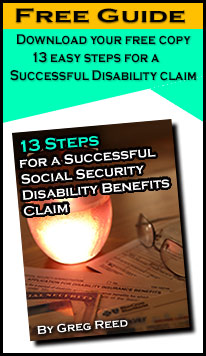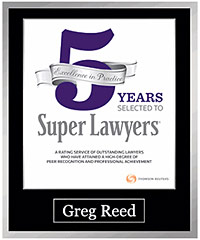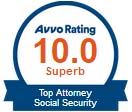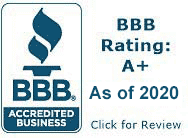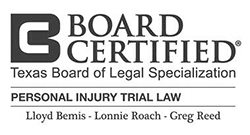Does Long-COVID Qualify for Disability Benefits?
Can I get disability benefits if I am suffering from the effects of Long-Covid?
Author: Attorney Lonnie Roach
Updated: 11/3/2023
Though most people who have been afflicted with COVID-19 eventually recover from the virus in several weeks, others continue to experience symptoms long after their initial diagnosis. Even people who were not hospitalized or had mild cases of COVID-19 may be troubled by lingering health issues. This condition is now referred to as long COVID. In these cases, the effects of COVID-19 last more than 12 weeks and may continue several months after the initial infection. It is estimated that 10 to 30 percent of people who had COVID-19 have long-COVID. Older people and patients who have other serious medical conditions are the most likely to experience these long-lasting symptoms, but even young people and those who were otherwise healthy when infected can feel the effects of the virus months later. If you are suffering from the effects of Long-COVID you may qualify for disability benefits.
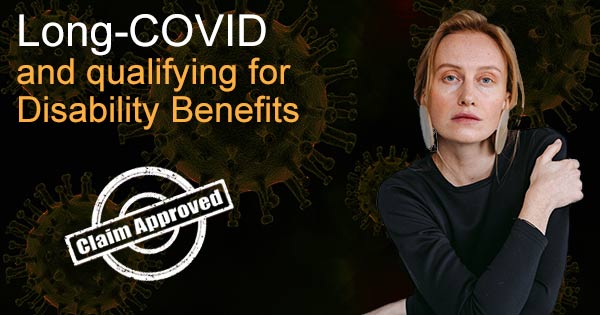
Can I get disability benefits if I am suffering from the effects of Long-COVID?
Is Long-COVID a Disability?
The most common symptoms of long COVID include:
- Breathing problems and shortness of breath;
- Coughing;
- Fatigue;
- Chest pain;
- Joint pain;
- Muscle pain;
- Headache;
- Fast heartbeat;
- Fever;
- Loss of taste or smell;
- Problems with memory and concentration (“brain fog”);
- Depression and anxiety;
- Sleep problems;
- Dizziness when standing up;
- Worse symptoms after physical or mental activities.
These or a combination of these symptoms can cause you to miss work and jeopardize your ability to maintain employment.
Though COVID-19 primarily affects the lungs, leading to long-term breathing problems, the virus can permanently damage other organs as well and increase the risk of other long-term health problems.
Other conditions which may result from the virus include:
- Cardiovascular problems. Imaging tests show that COVID-19 damages heart muscle, even in those with mild COVID-19 symptoms.
- Neurological issues. COVID-19 can affect the brain, even in young people, causing strokes, seizures, Guillain-Barre (a condition that causes temporary paralysis), and may increase the risk of Parkinson’s disease and Alzheimer’s disease.
- Blood clots and blood vessel problems. COVID-19 can cause blood cells to form clots, leading to heart attacks and strokes and impacting lungs, liver, kidneys and legs. The virus can also weaken blood vessels.
- Multi-system inflammatory symptoms. Organs and tissues may become severely inflamed as a result of COVID-19.
- Anxiety and depression. The experience of being hospitalized and placed on a ventilator can be traumatizing and lead to post traumatic stress disorder, depression and mood problems.
- Chronic fatigue syndrome.
These conditions and accompanying symptoms can affect your ability to maintain employment.
Because of its persistent symptoms, long COVID-19 is considered a disability under the Americans With Disabilities Act (ADA), Section 504 and Section 1557.
These laws protect people with disabilities from discrimination and define a person with a disability as “an individual with a physical or mental impairment that substantially limits one or more of the major life activities of such individual (“actual disability”); a person with a record of such an impairment (“record of”); or a person who is regarded as having such an impairment (“regarded as”).” According to the ADA, a person who has long COVID has a disability if their mental or physical condition or any of its symptoms substantially limits one or more major life activities. Major life activities include working, caring for oneself, and interacting with others.
A person with long-COVID-19 is entitled to the same protections and opportunities as any other person with a disability.
This means that businesses and state and local governments may need to allow accommodations for a person’s long COVID-related limitations. For example, reasonable accommodations in the workplace might include:
- Allowing a flexible work schedule;
- Changing job tasks;
- Providing or adjusting software or equipment;
- Providing reserved parking
- Improving accessibility to a work area;
- Modifying training materials.
Though a person who has long COVID may be entitled to certain accommodations under the ADA, they may not qualify for Social Security Disability income for various reasons.
Whether an applicant is approved for Social Security disability income will depend on the severity of the applicant’s symptoms, their functional limitations, and how long they last. The Social Security Administration defines disability as “the inability to do any substantial gainful activity by reason of any medically determinable physical or mental impairment which can be expected to result in death or which has lasted or can be expected to last for a continuous period of not less than 12 months.” To qualify for Social Security Disability benefits, a person with long COVID must be unable to do their past job or any other job for at least 12 months.
In December 2020, the Social Security Administration issued an emergency message addressing long COVID cases and how the agency intended to evaluate this condition.
Long COVID is not a medical listing like other impairments in Social Security’s Blue Book. To be considered a disabling impairment, a condition must be confirmed as a “medically determinable impairment” or MDI, evidenced by medical signs and laboratory findings.
In cases of long COVID, Social Security must see one of the following:
- A diagnostic test consistent with COVID-19; for example, a chest x-ray; OR
- A positive test for SAR-CoV-2; OR
- A diagnosis of COVID-19 with symptoms of COVID-19.
Many patients who have long-COVID contracted COVID-19 before testing was available (or did not know they had COVID-19), and Social Security will not accept an antibody test as proof of diagnosis.
Additionally, it may be unclear when an applicant’s symptoms will resolve, so the 12-month requirement may be hard to meet. However, Social Security does consider symptoms of other medical conditions in considering the duration of an impairment, so if long COVID results in a new medical condition (like heart palpitations), or makes an existing condition (such as COPD) worse, that may help the applicant meet the 12-month requirement.
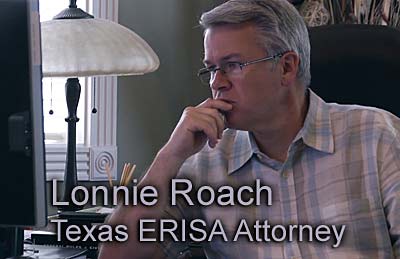
It is unlikely that Social Security will create a new listing for long-COVID, but even without a listing, Social Security may determine that an applicant is just as disabled as someone who meets a listing.
Social Security will compare the applicant’s symptoms and limitations to the criteria of any medically relevant impairment that is listed. If an applicant’s impairment doesn’t match or equal a listing, Social Security will assess the applicant’s functional limitations that were caused or worsened by long COVID. In particular, Social Security will be looking for long-term respiratory difficulties, cardiovascular problems, malfunctioning of the nervous system, muscle and joint problems and cognitive and mental problems.
An applicant will need to provide the following to Social Security:
- A diagnosis of COVID-19 backed up by signs of illness and a record of symptoms; and
- Evidence of functional limitations and how they affect their ability to work; and
- Documentation that the applicant has not been able to work, or will not be able to work for 12 months.
It will not be easy to be approved for SSDI if you have long COVID.
Individuals who have existing impairments will have the best chance for a successful claim. In the meantime, you may want to file a claim for short-term disability insurance if you have a policy through your employment. It’s also a good idea to enlist the assistance of an experienced disability attorney who can present your case to Social Security and show how and why your condition is as disabling as a listing.
Much is still unknown about COVID-19 and its long-lasting effects.
It makes it all the more important to reduce the spread of this deadly virus by wearing masks, social distancing and getting vaccinated.
A client from East Texas hired us to appeal his disability denial. Unfortunately, he was experiencing degenerative disc disease, Long Covid fatigue syndrome (post-acute sequelae of COVID (PASC)), sensorineural hearing loss, depression, and post-traumatic stress disorder (PTSD).
In its denial the Social Security Administration stated that the claimant did not have an impairment or combination of impairments that meets or medically equals the severity of one of the listed impairments and that the claimant was capable of a light residual functional capacity. The claimant’s mental capacity was assessed by the psychological consultants of the SSA, who determined that the client possessed a semi-skilled capacity with moderate limitations in performing detailed tasks. Mr. Messenger presented significant medical and psychological evidence demonstrating that the client had a neurocognitive disorder due to Long Covid-19 (post-acute sequelae of COVID (PASC)) and demonstrated a significant decline in mental functioning following his illness, as well as the development of memory issues.
The judge found that considering the claimant’s age, education, work experience, and residual functional capacity, there were no jobs that exist that the claimant could perform and his appeal was ruled fully favorable and was granted disability benefits.
If you are 55 or older or have another medical condition you may get approval.
Social Security follows a set of rules to determine when the agency expects an applicant to learn a new job.
Applicants who are 55 or older often fall under a grid rule, which means they are not expected to learn a new job. For example, a 55-year-old applicant with no transferable skills might be found disabled. If you can’t go back to your old job, and you don’t have the skills to learn a new one, Social Security will likely grant you disability benefits.
If you have another medical condition, you may also be eligible for Social Security Disability benefits.
People with Long-Covid tend to have a number of physical ailments, as well as possible anxiety and depression. One disorder alone may not meet the criteria of an impairment as stated in Social Security’s Blue Book, but if you have more than one medical condition, Social Security must consider how those health issues combined limit your ability to hold a job and perform necessary daily tasks.
Social Security also has basic financial requirements.
You must satisfy some basic financial requirements before you are eligible for Social Security disability benefits.
You must: 1) have a disability that has lasted or is expected to last 12 months; and 2) you must have worked in a job where you paid Social Security taxes long enough and recently enough; and 3) you must not earn more than Substantial Gainful Activity (SGA), which is $1,550 per month in 2024 for nonblind applicants and $2,590 per month for blind applicants.
What if I don’t qualify for SSDI?
If you haven’t worked long enough to earn enough work credits, or if you earn too much income, you may be eligible for disability benefits through another Social Security program, such as Supplemental Security Income (SSI), or from a long-term disability insurance plan through your employer or a privately purchased policy.
SSI is a program that pays monthly benefits to people with limited income and resources who are disabled, blind, or age 65 or older. SSI is based on income instead of work credits, and is financed by general funds of the U.S. Treasury.
I have long-term disability insurance – should I file a claim?
You should file a claim as soon as you become disabled.
Long-term disability insurance (LTD) is coverage that protects your income if you are unable to work due to illness or injury and is purchased as part of a group employment plan or privately through an insurance company. Policies pay between 50-60% of your salary and benefits continue until you return to work or for the number of years stated in the policy. However, LTD coverage is good only as long as you are employed, so do not quit your job before you file a claim, and be sure to check your policy’s definition of “disabled” as each policy will state the definition of “disabled” which is in use. Additionally, be aware that long-term disability insurance companies can require a claimant to also apply for SSDI.
How do I file for Social Security Disability benefits?
You can apply for Social Security Disability benefits online, over the phone, or in person at your local Social Security Administration office.
If your initial application is denied, don’t be discouraged. Most are, and you will have the opportunity to appeal. There are four steps to the Social Security appeal process:
- File a Request for Reconsideration with the Social Security Administration to completely review the case.
- If you don’t agree with SSA’s response to your Request for Reconsideration, you can request a hearing before an Administrative Law Judge (ALJ). ALJs are attorneys who work for the Social Security Administration; they review SSDI cases and either uphold or overturn decisions to deny SSDI benefits. If you are not represented by an attorney at this point, now is the time to obtain legal counsel. This is a critical point in the process and will raise your chance for success.
- If an ALJ does not grant your claim, you can request that the Appeals Council review your case.
- Federal Court review. The final step in the appeal process is filing suit in U.S. District Court.
Do I need a disability attorney for SSDI?
If Long-Covid prevents you from working, you may be eligible for Social Security Disability benefits, but qualifying may be difficult.
Your chances for approval are increased significantly if you have legal representation. At each potential stage of the process, from the initial application stage, the reconsideration stage and the ALJ hearing stage, an attorney can assist you in completing the detailed forms and questionnaires required by Social Security, collecting and submitting relevant medical evidence, and preparing questionnaires for your doctors. At the ALJ hearing phase an attorney will not only continue to assure that the evidence is complete, but prepare you for questioning by the ALJ, prepare an argument on your behalf and question any doctors or vocational experts selected by the ALJ to testify at the hearing. At the Appeals Council and federal court level, a lawyer can present legal arguments to show your case was wrongfully denied. Fees charged by disability attorneys are regulated by federal law and are usually 25% of disability backpay you are owed. There are no out-of-pocket costs, and if you don’t win your case, you won’t be charged anything.
Contact a Social Security disability attorney at 512-454-4000 for a free consultation and see if you can get disability benefits while suffering from Long-COVID. If you have been denied disability don’t give up!
Do I need a disability attorney for a long-term disability insurance claim?
Whether you have a long-term disability insurance policy purchased through a private insurance broker or a group policy purchased with your employer, filing a claim for long-term insurance is a complex process.
The wording of LTD policies can be confusing and the laws and regulations which affect the two types of LTD insurance differ in their procedures for filing claims and appeals. An experienced LTD attorney with thorough knowledge of ERISA laws and regulations will avoid mistakes and increase your chance of success. An attorney will act on your behalf, completing your application and filing your claim in a timely manner. They can also negotiate a settlement or file an appeal for you. If it becomes necessary to file suit, an LTD attorney can prepare your case against an insurer. Most LTD attorneys handle cases on a contingency basis and charge approximately 25%-40% of a claimant’s past due benefits. You do not pay an attorney’s fee unless the attorney wins your case.
Disability benefits are an important source of income for those who are unable to work. If you are not able to work due to accident or illness, you may be eligible for Social Security Disability or Long Term Disability benefits. If you have applied for benefits and been denied, contact the attorneys at Bemis, Roach and Reed for a free consultation. Call 512-454-4000 and get help NOW.
Should the disabled get the COVID-19 Vaccine?
The Covid-19 pandemic and its effect on the Disabled
13 Steps to Win your Disability Claim

Your Free Initial Consultation
At Bemis, Roach and Reed, if we can't help you, we will try to find the right attorneys for you.
We offer each of our prospective clients a free no obligation one hour phone or office consultation to see if we can help you and if you are comfortable with us. We know how difficult a time like this can be and how hard the decisions are. If we can be of assistance to you and help you find a solution to your issue we will even if that means referring you to another attorney.
Or simply call
512-454-4000
to schedule your
Free Consultation
Let's get you Started:
If you could provide us with some basic information about your claim we will get right back with you with a free case evaluation and schedule your Free Consultation Today.

